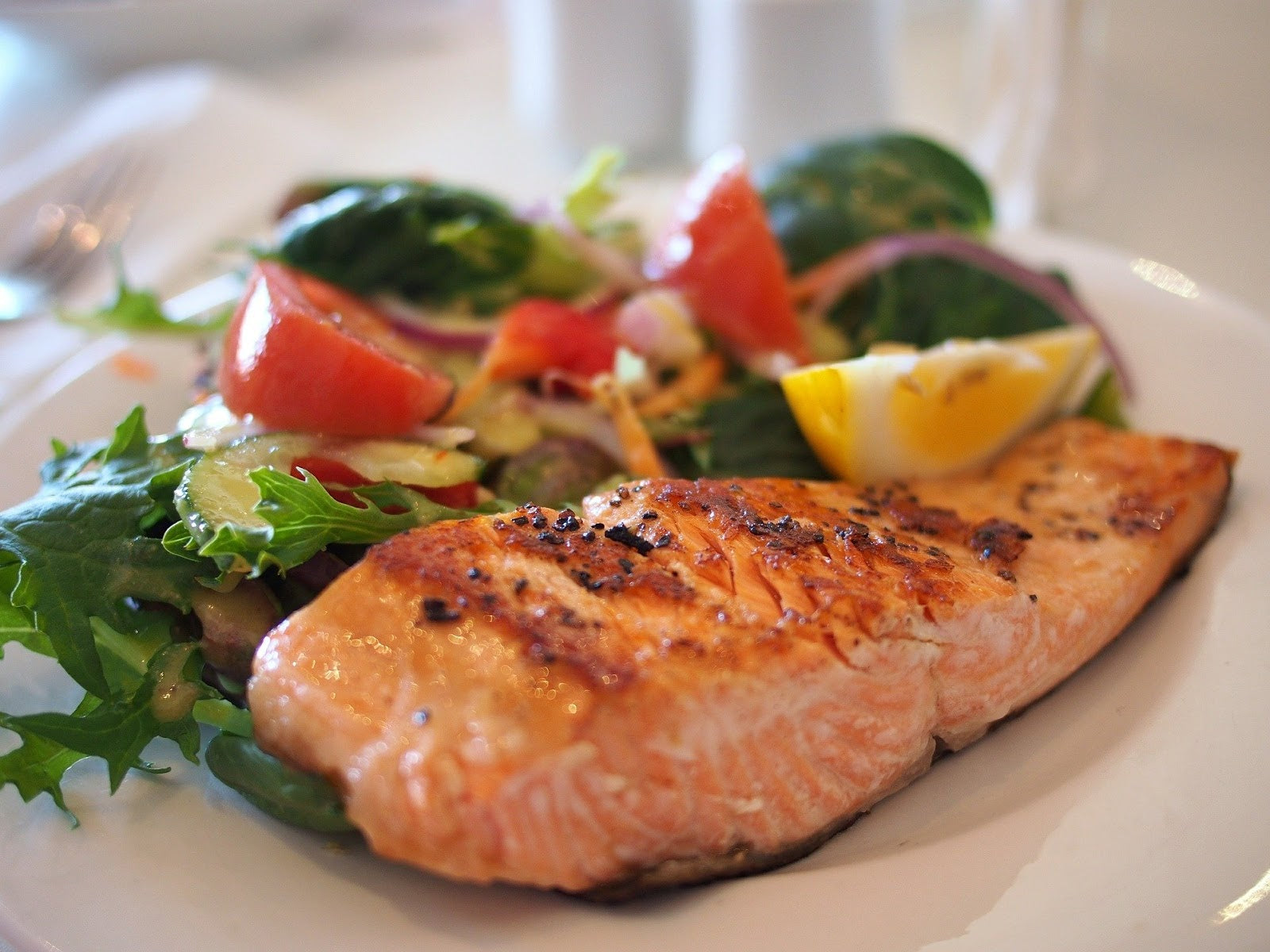
Making the switch to a new diet can be difficult, but the health benefits are absolutely worth it, especially when it comes to the Mediterranean Diet. Ready to dive in and see just how your health can benefit with the right meals and plenty of exercise?
What Foods Should You Eat on the Mediterranean Diet?
Before jumping straight into the benefits, it’s important to know exactly what foods make up the Mediterranean diet. The majority of meals should consist of fruit, nuts, vegetables, whole grains, legumes, seeds, potatoes, herbs and spices, seafood, and fish – all cooked in olive oil, of course! You can also have poultry, cheese, yogurt, and eggs, and red wine in moderation with the very occasional addition of red meat.
It’s generally recommended, when following this diet, to stay away from added sugar (soda), trans fats (doughnuts), refined grains (white bread), processed meat (hot dogs), refined oils, and highly processed foods.
The Health Benefits of a Mediterranean Diet

Combined with an exercise routine, it is possible to unlock quite a few health benefits by following the Mediterranean diet. Here are a few you should definitely note:
You Could Live Longer
Healthy diets are usually tied with living longer, and the Mediterranean diet is no exception. Women who followed healthy diets in their 50’s and 60’s were actually 40% more likely to live past 70 years old.
It Helps To Reduce Heart Disease
Fish, olive oil, and nuts in a diet can work to have anti-inflammatory effects on your body, reducing the chance of developing heart disease. It was found that those who had a calorie-unrestricted Mediterranean diet had a 30% lower risk of heart issues.
It Helps To Reduce the Risk of Stroke
Women, in particular, can benefit here and it was found that following the diet resulted in about a 20% less chance of having a stroke.
It Assists with Rheumatoid Arthritis
If you suffer from Rheumatoid Arthritis, you may also benefit from following the Mediterranean diet. In RA, the immune system mistakenly attacks joints. Since the diet has anti-inflammatory properties, it can help to reduce the pain and problems associated with the autoimmune disease.
It Can Help with Weight Loss or Help You Maintain a Steady Weight
If you have issues losing weight or holding your weight steady, you could find the perfect meal plan here. Eating healthy and exercising regularly are two of the best things you can do for your weight.
It Can Help with Diabetes Type 2
Rich in fiber, a Mediterranean diet helps to prevent huge swings in blood sugar, and, as noted above, helps you maintain a healthy weight, reducing your risk of type 2 diabetes. It’s also been found to help with health complications from the disease.
It Could Reduce the Risk of Alzheimer's, Dementia, and Parkinson’s Disease
The healthy Mediterranean diet has also been shown to be able to reduce the risk of Alzheimer’s and dementia as it works to improve your blood vessel health, cholesterol, and blood sugar levels. The high antioxidants also can cut the risk of Parkinson’s disease.
It May Help with Depression
Studies have found that following a Mediterranean diet may reduce the risk of depression by 33%.
It Could Lower Your Chance of Developing Cancer
Certain diets could actually increase your chance of developing cancer. On the other hand, the Mediterranean diet has been linked to lowering the risk of colon cancer, breast cancer, and other cancers due to its inclusion of whole grains, vegetables, and fruits.
Tips for Starting the Mediterranean Diet
If you’re thinking about starting a Mediterranean diet, congratulations! You’re on your way to a healthier life. But be sure you don’t jump in too quickly. As with any diet, moving too fast into a new lifestyle can be tough as it’s a big switch for many. Instead, take smaller steps. Here are a few tips to help you get started:
- Take a look at the various recipes under the Mediterranean diet and pick out your favorites to start with.
- Begin by adding more vegetables to your meals.
- Stop skipping breakfast.
- Start eating an all-veggie meal one or two nights a week.
- Try to add seafood to two meals a week.
- Slowly start to have less dairy, red meat, and desserts.
- You don’t need to phase them out completely, however. Dairy and red meat should be eaten sparingly while desserts can be replaced by fruits.
- Try cooking with others who might be interested in the diet as well!
- Remember, it’s okay to have foods like sodas and doughnuts but in moderation. You don’t need to cut out all of your favorite treats, but you do need to cut back.
The Mediterranean diet is an amazing way to get on the pathway to good health. Which recipe will you be trying first?


Leave a comment (all fields required)